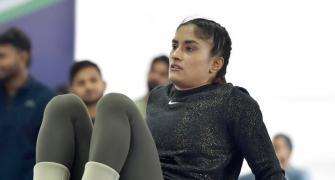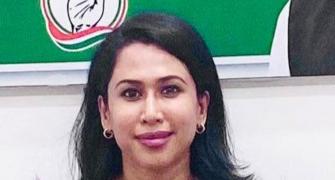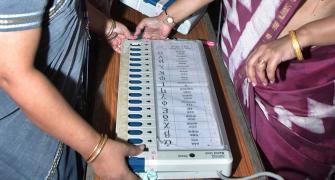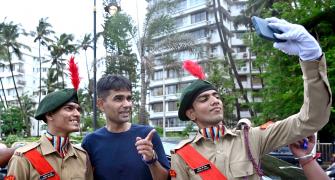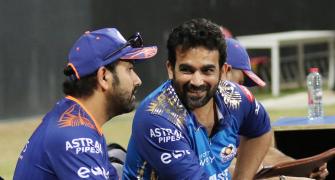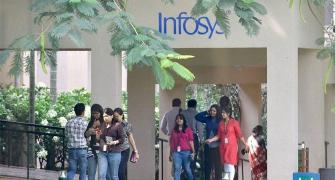This is because Sheetal Sheth has been returning to her native land India for years.
A graduate of the Tisch School of Arts, New York University, she is thrilled her film finally released last week in the country that is very close to her heart.
 American Chai, written and directed by Anurag Mehta, portrays two generations at odds with each other within an Indian family in America today. It has already won a string of awards, including audience awards in 2001 at both the Slamdance and Gen Art Film Festivals.
American Chai, written and directed by Anurag Mehta, portrays two generations at odds with each other within an Indian family in America today. It has already won a string of awards, including audience awards in 2001 at both the Slamdance and Gen Art Film Festivals.
Gavin O'Malley spoke with Sheetal -- stunning eyes and all -- about the film's broad appeal, the life of an American-born Indian actress, and the big differences between Hollywood and Bollywood.
Chai means tea, right?
Yes.
Where did the title, American Chai, come from?
Well, our director Anurag Mehta had the American phrase, 'As wholesome as American pie', in mind. The movie is very American at its core, but there is a strong Indian flavour as well.
It is about the character Sureel, a musician who has been lying to his parents who think he is studying to be a doctor. Along this difficult journey, Sureel meets Maya -- that's me.
Maya is a dancer who is at ease with herself, but is struggling to realise her potential. When the two meet, they inspire each other to go after the things that they have wanted to all along and realise the talents they both have.
What genre does the film fall into?
It is a dramedy. You know, drama and comedy. It is very funny. It is important that people realise that.
What was working with Anurag Mehta like?
It was great! This is his first feature film. I think there is something special, a special insight, working with a director who has written the movie. That was a plus given that writing is the most important thing in my book.
What do you feel is the difference between Bollywood and Hollywood?
Bollywood and Hollywood are very, very different.
Bollywood has an amazing ability to project grandeur and love and action. [The musical] is a beautiful thing; the idea of song when you can't express something so intense in words. Unfortunately, no one sings their own songs.
In America, realism and story are most important. Growing up in America and going through American-style theatre, training that places such emphasis on character and script, I don't find a ton of opportunity over here [India] to focus on those things.
Actresses who have a great deal of talent [in Bollywood] just end up playing themselves [as apposed to characters] in a lot of the films made here. Actresses have more potential than that.
But there is a great independent market in India that deals with taboo topics. That is what I find interesting.
Do you think Indian films are sufficiently representative of Indian people -- their problems, their history, etc?
I think the reason people love movies is because it allows them to escape their lives. People are in awe of the rich lifestyles they see.
But no, I don't think they represent most people's lives. There are some independent films that explore issues, but Bollywood mainstream does not represent the masses.
In America, we love celebrities, but here, it is on another level. I mean, they [Indians] deify their celebrities. They are like gods!
So what deity do you envision yourself as?
I don't know! [Laughs] I mean, people have certainly recognised us and have been crazy. But I can't even imagine what it would be like to be a big star. They [Indians] barely know me and they are freaking out!
Where are you from?
I was raised in Bethlehem, Pennsylvania, but I am all Indian. My parents raised me with very important traditional values.
You are often cast in minority roles in the US, but you play a wide range of ethnicities -- Indian to Italian to Latino. Are you ever held back by this typecasting or free because you get to explore such a wide range of characters?
When I was in school, I never thought about it. Maybe I was naive.
It wasn't until I started going through the whole casting process that I realised ethnicity was an issue. I don't care about that though, and it is not important to me.
What is frustrating is when a script calls specifically for an Indian actress and [the studios] go straight to Salma Hayek!
Gavin O'Malley, a graduate student of business journalism at City University of New York, is spending six weeks at rediff.com

